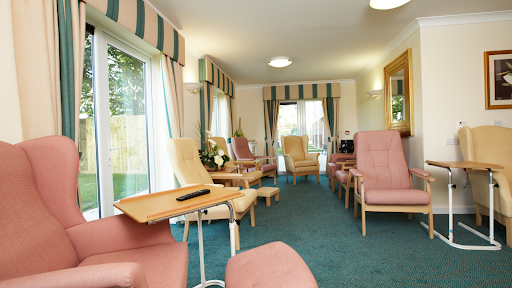Residential Care vs Nursing Homes Chairs

The key word in ‘residential home’ and ‘nursing home’ is the word home. To this end, making the space homely and comfortable is essential. The furniture, or more specifically the chairs within these homes, is crucial to the environment and the comfort they provide for their residents. But should the chairs chosen for a residential home differ from the chairs in a care home? And what are the differences that you should be looking for?
What is the Difference Between a Residential Home and a Nursing Home?
Residential homes are generally a supported environment enabling vulnerable people to live as independently as possible. Like any home, they have a sitting room, dining area for meals, and living accommodations. Unlike a hotel or private household, they provide personal care and support like washing and dressing, occasional hairdressing, and activities such as chair-based exercise. They may require a range of chairs to support different purposes and levels of ability and activity.
Nursing homes are another level up from residential, with the added medical care of a qualified nurse or nurses on duty around the clock. Care home chairs may be required for supporting frailer individuals who may require longer periods of sitting or rest.
Choosing Chairs for Residents
Chairs can and should be chosen for your client’s unique requirements, which may even include the resident cat! Things have moved on so much in recent years when it comes to seat technology. For the elderly and those requiring assisted living, there is now a wide selection of non-standard seating.
It may no longer be appropriate to purchase a set of identical chairs. Chairs may provide everyday support for some, but not for all. Today, industry efforts are aimed at removing the institutional feel from our care homes and focusing more on individualised care.
For younger, more agile, or able-bodied individuals in a residential home, chairs may restrict their physical movements. By enabling a greater range of movement, whilst providing the correct support, your clients may find better comfort when sitting.
For older clients with more complex needs in a nursing home, their muscles may have become weaker and it may become harder for them to sit upright. The right chair can support and prevent slipping down and slouching or awkward leaning which may all lead to discomfort and even exacerbate muscular and breathing problems. The right chair can also improve health and safety and reduce the risk of falling.

Chair Options
There are a variety of options to consider when it comes to choosing chairs for your residential or nursing home.
Bariatric Chairs
Over time our population is evolving, and there are increasing numbers of taller and larger people. Some may find regular chairs too flimsy for their needs. Bariatric chairs are larger and able to support a heavier load, they also have more suitably positioned arms. This may remove anxiety and embarrassment from your residents who may struggle to be seated in a standard chair, whilst increasing comfort.
The Colonsay Bariatric Chair is a great choice for lounge seating and can be ordered in a variety of colours and wood finishes. The fabric is waterproof and washable to ensure hygiene standards can be met with ease.
Recliner Chairs
Recliner chairs may ease issues caused by long-term sitting, and motorised versions can facilitate a range of sitting, resting, and reclining positions with a simple press of a button. There are dual and single motor options as well as manual.
The benefits of a dual motor mechanism recliner are that the back and the footrest can be manipulated independently allowing for a greater range of movement and adjustment for comfort.
A combination of manual and mechanical support can help with physical activities. An assessment of your patient's needs will help you determine the best seating solution for them.

The Helsinki Posture Chair is a popular recliner chair that is innovatively designed for users with severe motor difficulties. It has pressure-relieving memory foam and an anti-microbial vinyl covering both of which move and stretch with the client and return to their original shape afterwards. These are suitable for care and nursing homes. There is also a separate deep foam leg rest available for added comfort and relief.
Matching Fabrics but Different Chairs
In the supported environment of a residential or care home, comfortable chairs are a major investment. Choosing beautiful colours and fabrics can help to lift spirits and therefore improve the well-being of residents, chairs do not need to be dull.
You can choose individual chairs for the unique needs of your client and then match the fabric to work with your environment or opt for an anti-microbial finish. You can also choose muted tones or bright colours that are appropriate for the space. A variety of finishes and fabrics are available on most chairs.
UK Healthcare Chairs is a well-established leading supplier of care home furniture. We are proud of our customer service and would love to talk to you about the needs of your residential or care home. Our furniture is approved for use in care homes and we are suppliers to the NHS. Our manufacturers are UK based and all products are durable and well designed for their purpose.
Back to blog posts